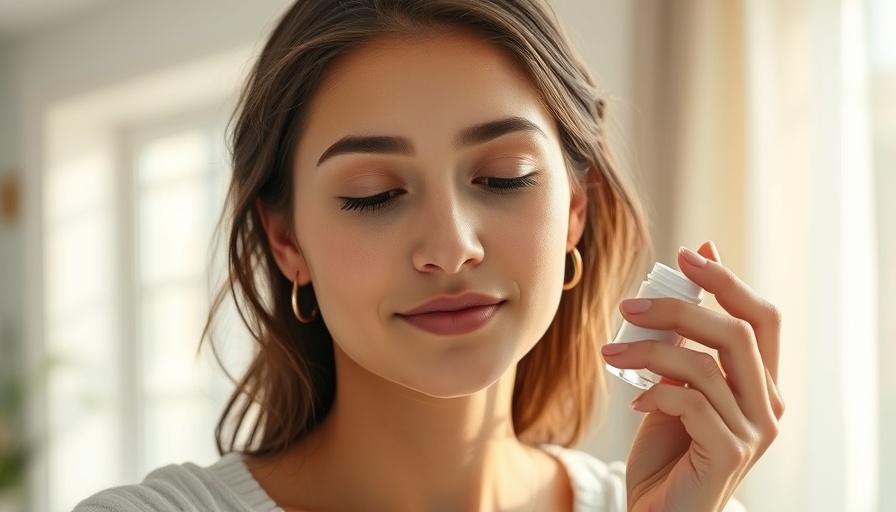
The Battle of Skincare Titans: Niacinamide Vs. Retinol
Skincare can often feel like a never-ending maze of products and promises. With buzzwords like "glowing skin" and "anti-aging" plastering every ad, it's important to cut through the noise. Two ingredients that have earned their spots at the forefront of beauty regimes are niacinamide and retinol. Both claims from brands highlight their benefits, but in the great debate of niacinamide vs. retinol, does one shine brighter?
Understanding Niacinamide: The Gentle Powerhouse
Niacinamide, also known as vitamin B3, is often touted as a cornerstone of modern skincare. Why? It’s not just gentle; it’s incredibly effective at tackling a range of skin issues. Perfect for those concerned with acne, this water-soluble vitamin delivers benefits such as:
- Anti-inflammatory Properties: Niacinamide works wonders for acne-prone skin by reducing inflammation and redness.
- Regulates Sebum: It aids in controlling oil production, making it perfect for those with oily skin.
- Pore Minimization: Regular use can lead to tighter, more refined pores and an overall smoother complexion.
- Even Skin Tone: By inhibiting melanin production, it can fade dark spots and hyperpigmentation, giving way to a more radiant skin tone.
- Anti-Aging Qualities: It enhances skin elasticity, leading to fewer fine lines and wrinkles.
Spotlight on Retinol: The Anti-Aging Hero
On the flip side lies retinol, a derivative of vitamin A, known for its anti-aging prowess. It's known for its cell turnover stimulation, which makes it a popular choice for those wanting to combat visible signs of aging. Here’s what it brings to the table:
- Removes Dead Skin Cells: Retinol accelerates cell turnover, revealing a fresher layer of skin beneath.
- Improves Texture: This ingredient is a favorite for smoothing skin, which can be particularly beneficial to aging and sun-damaged skin.
- Reduces Wrinkles: Regular use can lead to a significant decrease in both fine lines and deeper set wrinkles.
- Fades Hyperpigmentation: Like niacinamide, retinol can also improve pigmentation issues.
Potential Side Effects: Choosing the Right One for You
While both niacinamide and retinol boast impressive benefits, they are not without their potential side effects. Niacinamide is generally well-tolerated, although it can cause mild irritations in sensitive skin. Retinol, however, may lead to peeling, redness, or dryness, particularly when starting treatment. Understanding your skin’s unique needs can illuminate your path forward in this debate.
Using Both Ingredients: A Complementary Approach
Many skincare enthusiasts are tossing a new question into the mix: can both ingredients coexist? The good news is yes! When combined in a skincare routine, niacinamide can temper retinol’s harsh side effects, making for a tailored approach to achieving balanced, glowing skin.
Current Trends: How to Integrate These Ingredients
In a world where skincare trends are ever-evolving, the rise of combining both niacinamide and retinol reflects a shift toward more personalized skincare. As your skin responds to one or the other, you can adjust the frequency and amounts, creating a workout regime for your skin.
Popular products like moisturizer serums often include both, making it easier for individuals to incorporate them seamlessly into their routines without needing to buy two separate products.
Final Thoughts: Making the Best Choice for Your Skin
When determining whether niacinamide or retinol is superior, it really boils down to your unique skin type and concerns. While niacinamide excels in reducing redness and evening tone, retinol stands out for its cell turnover benefits, making it ideal for anti-aging. Both have their merits and potential drawbacks, but neither has to go it alone. Adapting a personal skincare routine that emphasizes the strengths of both may ultimately lead to the healthiest skin year-round.
Embrace Your Skincare Journey
As with any beauty endeavor, embracing change and understanding the ingredients is key. Whether you choose niacinamide, retinol, or both, the ultimate goal is achieving your personal best skin — beautiful and healthy. Why not start experimenting with these two powerhouse ingredients today? Your skin deserves the best!
Ready to take your skincare routine to the next level? Consider integrating both niacinamide and retinol into your beauty regimen to enjoy their unique benefits while protecting your skin from potential irritations. Explore products that suit your skin type for a balanced approach to skincare.
 Add Row
Add Row  Add
Add 




Write A Comment